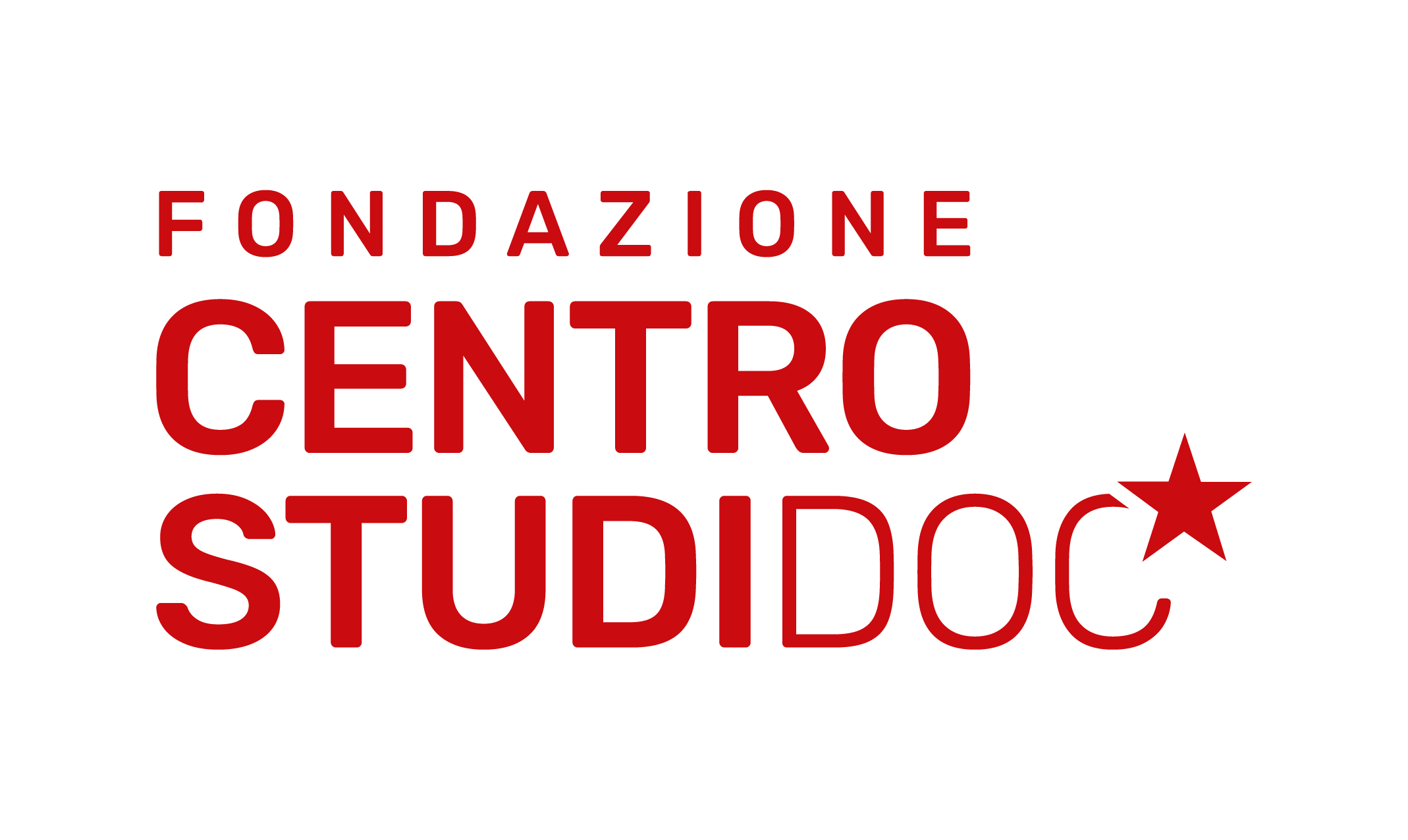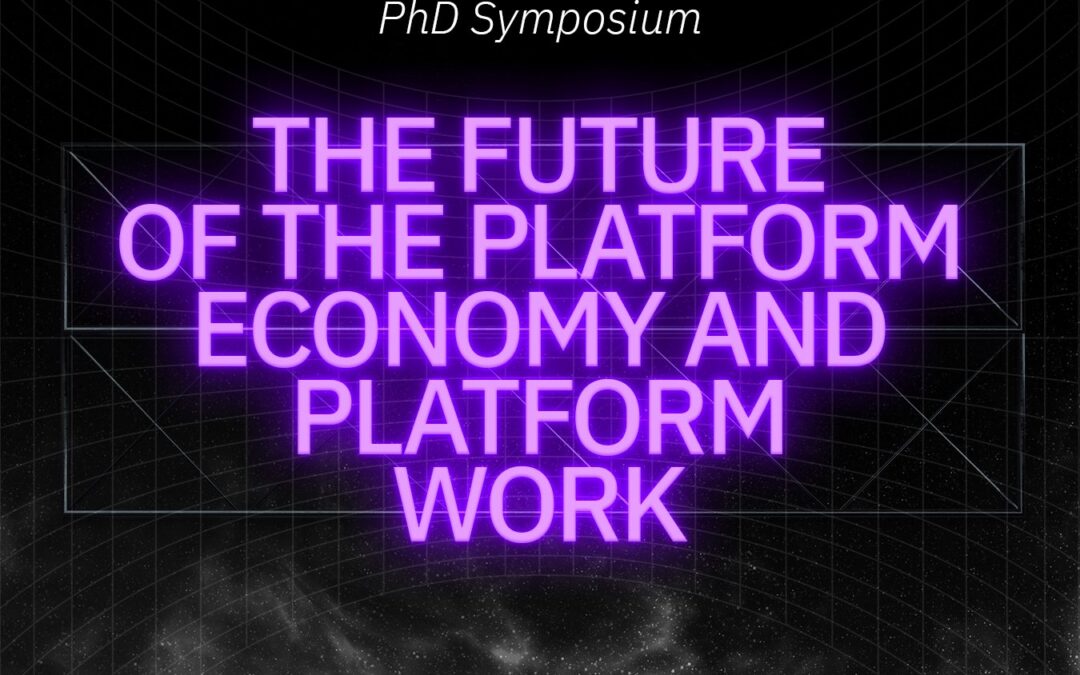Tempo di lettura: 3 minuti
Il 27 e il 28 ottobre appuntamento con il simposio di dottorandi sul futuro dell’economia e del lavoro di piattaforma organizzato da DigiLabour e Dimmons e al quale parteciperà anche la Fondazione Centro Studi Doc.
Simposio sul futuro dell’economia e del lavoro su piattaforma
Mercoledì 27 e giovedì 28 ottobre è in programma The Future of the Platform Economy and Platform Work. Il simposio è organizzato da una collaborazione tra i laboratori di ricerca DigiLabour e Dimmons. I due laboratori sono rispettivamente afferenti all’Universidade do Vale do Rio dos Sinos (Unisinos University, Brasile) e all’Universitat Oberta de Catalunya (Spagna).
Il simposio riunisce dottorandi che presenteranno le loro ricerche in corso relative all’ampio argomento del lavoro su piattaforma. L’obiettivo degli incontri è di offrire una piattaforma per studenti e ricercatori in diverse fasi della loro ricerca e carriera che desiderano presentare e ricevere indicazioni su vari aspetti della loro ricerca e prospettive di carriera da ricercatori affermati e altri dottorandi. Sono previsti anche momenti di formazione con gli interventi di importanti esperti del settore.
Francesca Martinelli, direttrice della Fondazione Centro Studi Doc, parteciperà nel ruolo di discussant all’incontro di giovedì 28 ottobre alle ore 15 dedicato al Cooperativismo di piattaforma: sfide attuali nell’economia e nel lavoro di piattaforma.
L’evento è gratuito previa iscrizione cliccando qui.
Il programma del simposio sul lavoro su piattaforma
Mercoledì 27 ottobre alle ore 15.00 si inaugura il simposio con la sessione di apertura presentata da Rafael Grohmann (Unisinos University) e Melissa Renau Cano (Open University of Catalonia).
ORE 15.15 – Content Creation: Evidence From China, Europe, the US and West Africa
Dottorandi:
- Yin Liang (Durham University) – A typology of content creative platforms: evidence from the UK, the US and China
- Jordan Duran (University of North Carolina at Charlotte) – Centering the platform in content creation: the role of monetization in creators’ relational work and identity
- Tugce Bidav (Maynooth University) – Global platform, local labour: YouTube Creators in Ireland and Turkey
- Godwin Simon (Queensland University of Technology) – Adapting to platform logics: platform practices among YouTube-centric Nollywood filmmakers
Discutono con:
- Taina Bucher (University of Oslo)
- Arturo Arriagada (Adolfo Ibáñez University)
ORE 17.30 – Platform Work Across Different Sectors
Dottorandi:
- Konstantinos Floros (IT University of Copenhagen) – Danish housecleaning platforms: producing, governing and resisting flexibility in the platform economy
- Lan Li (University of North Carolina at Chapel Hill) – Online Freelancing for Data Scientists
- Julian Posada (University of Toronto) – Support Networks in Platform Work
- Pedro Veiga de Almeida (University of Massachusetts – Amherst) – Rethinking Digital Consumption
- Ruth Livier Nuñez (University of California, Los Angeles – UCLA) – Injustice by Design: A Chicana/Latina feminist analysis of Amazon’s ACX labor platform
Discutono con:
- Julie Chen (University of Toronto)
- Julia Ticona (University of Pennsylvania)
- Maria Clara Aquino (Unisinos University)
ORE 19.30 – Gamers, Streamers, Subtitlers, and Cosplayers: Work Conditions and Platform Practices
Dottorandi:
- Christine Tran (University of Toronto) – Pink-Collar playbour: the digital housework of video game livestreaming
- Beatriz Blanco (Unisinos University) – Visibility labor and feminist activism among gaming streamers in Brazil
- Suryansu Guha (University of California, Los Angeles – UCLA) – Scribes for hire: the work of subtitling and the changing contours of precarity in the Indian creative industries
- Beatrys Rodrigues (Cornell University) – “Becoming Waifu” – Cosplayers’ commodification of digitally mediated intimacy
Discutono con:
- Michael Siciliano (Queen’s University)
- Angèle Christin (Stanford University)
- Adriana Amaral (Unisinos University)
Si chiude la giornata alle ore 22.00 con il seminario Co-designed strategic planning and agile project management per dottorandi tenuto da Enric Senabre Hidalgo (Peer-Produced Research Lab, CRI – Université Paris, Dimmons Research Group, Universitat Oberta de Catalunya).
October 28
Giovedì 28 ottobre partecipa anche la Fondazione Centro Studi Doc al simposio dedicato al lavoro su piattaforma
ORE 15.00 – Platform Cooperativism: current challenges in the platform economy and platform work
Dottorandi:
- Chenai Chair (Mozilla Foundation), Salonie Muralidhara Hiriyur (SEWA Cooperative Federation), Denise Kasparian (University of Buenos Aires), and Vera Vidal (Universitat Oberta de Catalunya) – Building feminist platform cooperatives: initial reflections from the fields
- Damion Bunders (Rotterdam School of Management) – Member participation in digital cooperatives: Silicon law of oligarchy or democratic disruptor?
- Lorena Vilarins (University of Brasília) – Platform cooperativism and the challenge of confronting the hegemonic political economy
- Rashid Owoyele (The Weizenbaum Institute) – Design for Economic Transformation — cooperativist futures
Discutono con:
- Francesca Martinelli (Fondazione Centro Studi Doc)
- Rafael Grohmann (Unisinos University)
- Monica Grau (UOC)
ORE 17.30 – Algorithmic Management and Feminist Approaches in Last-Mile Delivery and Ride-Hailing Platforms
Dottorandi:
- Kalle Kusk Gjetting (Aarhus University) – Lenient algorithmic management: Ethnographic research on a food delivery platform in Scandinavia
- Onat Kibaroglu (National University of Singapore) – Gojek as City
- Pallavi Bansal (Erasmus University Rotterdam) – Feminist approaches to ride-hailing sector in India
- Francesco Bonifacio (Catholic University, Milan) – Resistance or expertise? Reframing riders’ interaction with algorithms, exploring workers’ distinctions
Discutono con:
- Noopur Raval (AI Now Institute, New York University)
- Gavin Mueller (University of Amsterdam)
Alle ore 20.00 si svolge il secondo seminario dedicato a Dissemination of Research Beyond Journals e tenuto da Rafael Grohmann (DigiLabour Research Lab, Unisinos University) e Adriana Amaral (CultPop Lab, Unisinos University).
Il simposio si conclude alle ore 22.00 con l’intervento di Lilly Irani (University of California, San Diego) dedicato a Turkopticon: From Software to Worker Organization.

